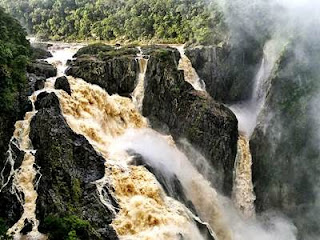Being present means accepting whatever is happening right now and just staying with it as long as it lasts.
If we stop to think for a moment how much time we spend pushing away the things that we don't want to deal with, trying to change things, trying to feel better, it is amazing how much time and energy we actually spend trying to avoid whatever is happening
right now.
A little shift in perspective here can be very revealing. If we turn the 'camera' of our mind around and take a selfie, just as we are now and if we are prepared to stand by what is reflected back to us, without trying to manipulate the image in any way, then we are taking our first little baby steps in
'owning' this present moment.
If true freedom is about letting go of our concepts, then imagine the feelings that will flood us when we begin to just start 'living our lives.' This means living ALL of whatever comes our way, not trying to deflect what is not wanted or invite what is. Not trying to manipulate the moment in order to change an outcome, not trying to change how we are, by replacing it with an image of what we 'think' we are.
Usually, depending on our innate tenancies, the minute we begin to feel the slightest twinge of discomfort our habit is to 'reach for something.' Be it the phone, the TV, something to eat, a cigarette.
Anything that will distract us from what is
actually happening.
Its true isn't it? We don't even realise that we do this constantly. Yet we are all, almost obsessively, busy with
nonsense most of the time. When we are already distracted and our attention drawn elsewhere we are fine. The moment a space opens up before us we shut it off by turning our attention elsewhere. Why are we afraid?
We don't know how to
just be any more. Our modern age has robbed us of 'ourselves.' Whether we are actually doing anything or not our attention is constantly engaged in the 'outer,' whatever that may be at any given moment.
This is a kind of modern epidemic of constant engagement and busyness. The incessant inner 'noise' prevents our natural ability to just abide. It prevents us from just letting ourselves go and allowing whatever is arising in this present moment to wash over us without any resistance from our side, without any judgement, without trying to change anything.
If it is painful, let it be. Taste the pain, know the pain. Accept the pain and above all look into '
who is feeling the pain.'
If it is fear, watch it rising up inside, let it come, look it in the face.
Look at what and who it is that feels the fear.
If it is sadness, allow the tears to flow, don't judge yourself, don't try to interpret your moods, don't try to stop them. Simply
recognise them.
Our inherent power arises from tasting all the moods and emotions that arise within us without accepting or rejecting. When we are familiar with the moods, we no longer fear them. At a certain point, we come to see that
what it is that is watching the moods is never in any way affected by what is going on. We begin to understand that we are not our moods, that moods arise and pass away, yet something is always present and aware.
Our thoughts operate in the same way, they are constantly coming and going, yet can we say that 'we are our thoughts?' Can we identify the thoughts as ours? Can we find the source of our thoughts?


.jpg)


.jpg)
.jpg)







